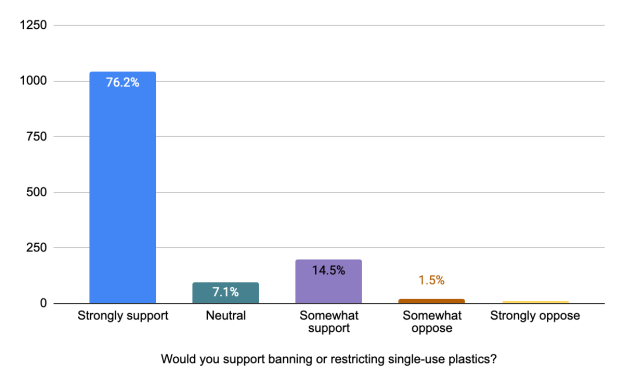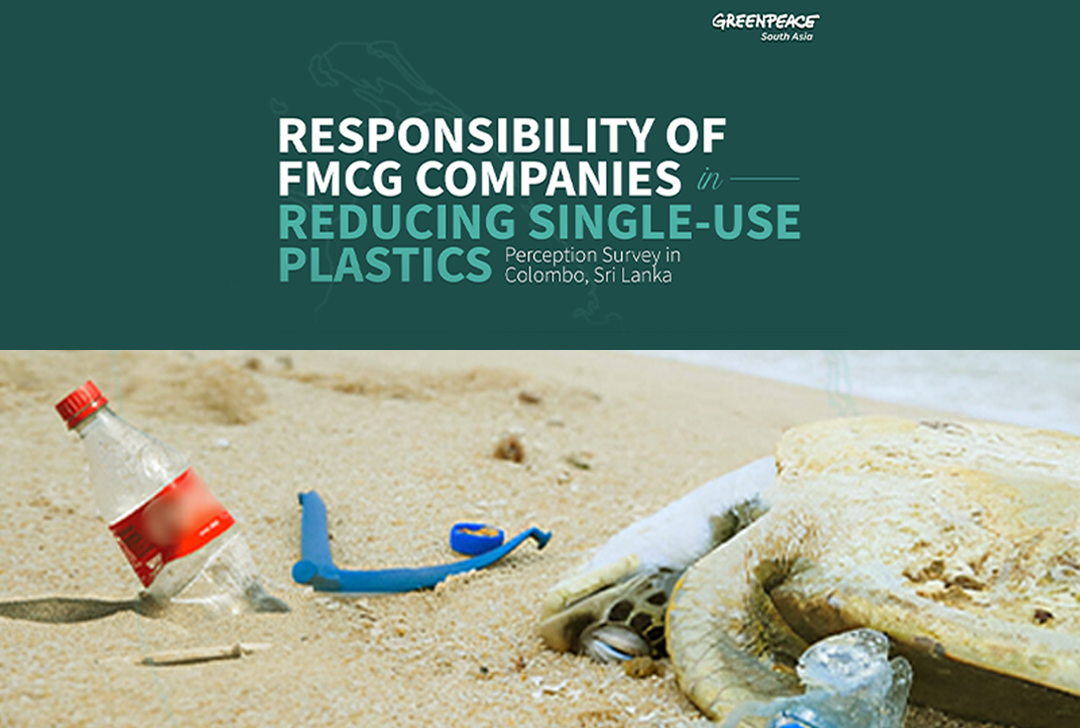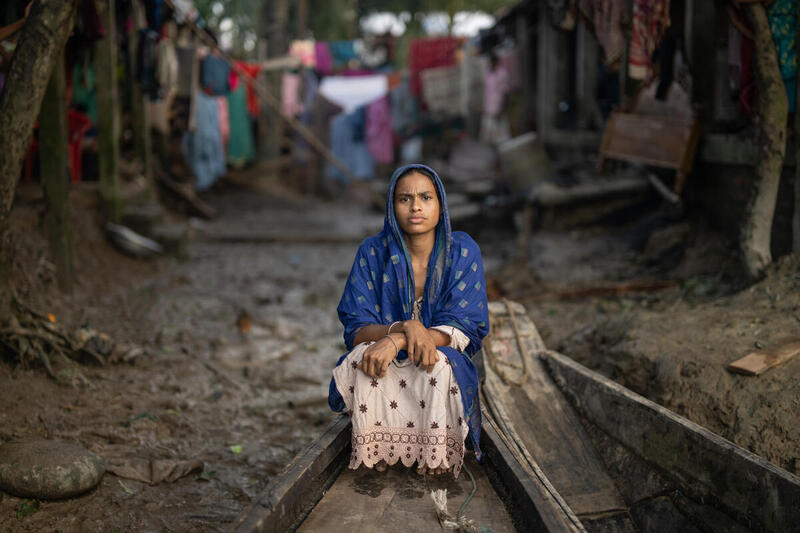For ten gruelling hours in Efate island, Vanuatu, I desperately clung to the door of the guesthouse room I was staying in as unrelenting winds threatened to rip it off the hinges.
I came to Vanuatu to hear about the locals’ experience of extreme weather and here I was, in my room, shin-deep in water, fighting for survival.
This year in early March, I was collecting harrowing stories of climate-inflicted loss and damage as a part of Vanuatu’s successful push to have the International Court of Justice provide an Advisory Opinion on states’ responsibility for climate change. As an island nation in the middle of the Pacific, Vanuatu is no stranger to extreme weather but the climate crisis has made parts of an already vulnerable nation feel almost uninhabitable. That’s how it felt during my brief visit when the nation was hammered by two major cyclones in two days.
During my 12 days of stay, the serene paradise of Vanuatu faced the unforgiving wrath of Tropical Cyclones Judy and Kevin, which both made landfall within 48 hours of each other. It was a harrowing testament to the intensifying impact of extreme weather events in the Pacific.
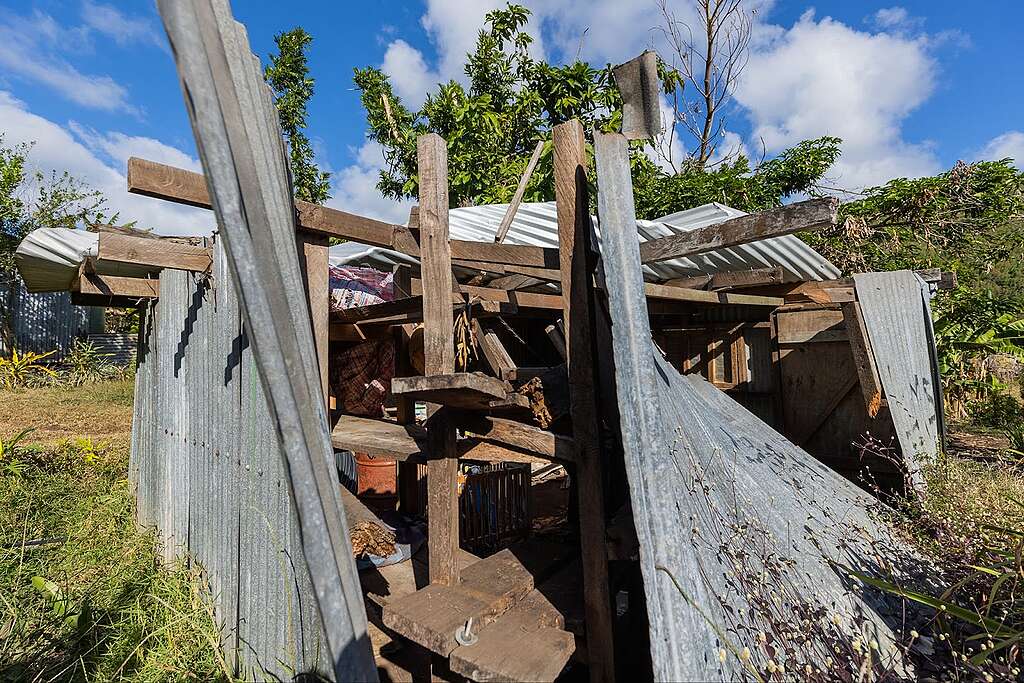
After making it through the night where 260 km/hr winds of Cyclone Judy tore the roof from my neighbour’s home, the rising sun lifted the curtain on scenes of utter chaos. Uprooted trees, downed power lines, shattered homes, personal possessions sprawled across fields and everywhere I looked, communities left in ruins.
My original mission was momentarily put to one side as I found myself entrenched in the chaos, bearing witness to the heart-wrenching loss and damage inflicted upon our communities, lives, and cultural fabric.
So despite the challenges, I had a new mission and it was clear – to deliver essentials to those affected. Under the guidance of my host, ActionAid Country Director Flora Vano, one of the first people we visited was the home of a mutual friend and community leader named Annie.
Many Efate island locals had flocked to Annie’s home as news of the cyclone’s imminent arrivals caused panic. What was once a sanctuary lay in ruins, her possessions scattered, her livelihood obliterated. Annie, a beacon of resilience who had sheltered numerous families, faced the harsh reality of the havoc wreaked upon her community.
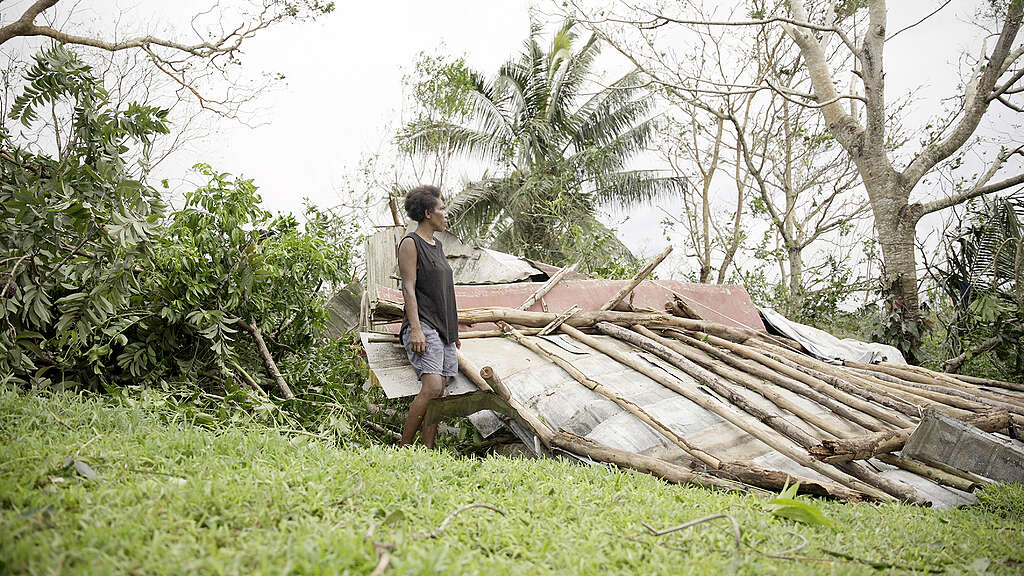
Days later, Cyclone Kevin struck, compounding the misery.
Kevin, originally a Category 2 force, morphed into a Category 4 tempest, culminating in a Category 5 juggernaut that mercilessly battered Port Vila and swept through Efate, Erromango, and Tanna. What Judy spared, Kevin obliterated. It was a relentless assault that left communities grappling with the profound loss of lives, livelihoods, and cultural connections.
The day after Cyclone Kevin, as I again distributed food, water, and health kits, I witnessed the indomitable spirit of our communities. Mothers sold their last remaining produce, and communities joined forces to clear the devastation. In parting, the resilient women of Eton, a community ravaged by the cyclone, gifted me bananas as a token of gratitude.
The communities remained powerful, resilient, and generous, but beneath this strength lay the sorrow of losing nearly everything, the frustration of continuous rebuilding, and the unfortunate inability to sustain their cultures, languages, and connection to their Vanua (land).
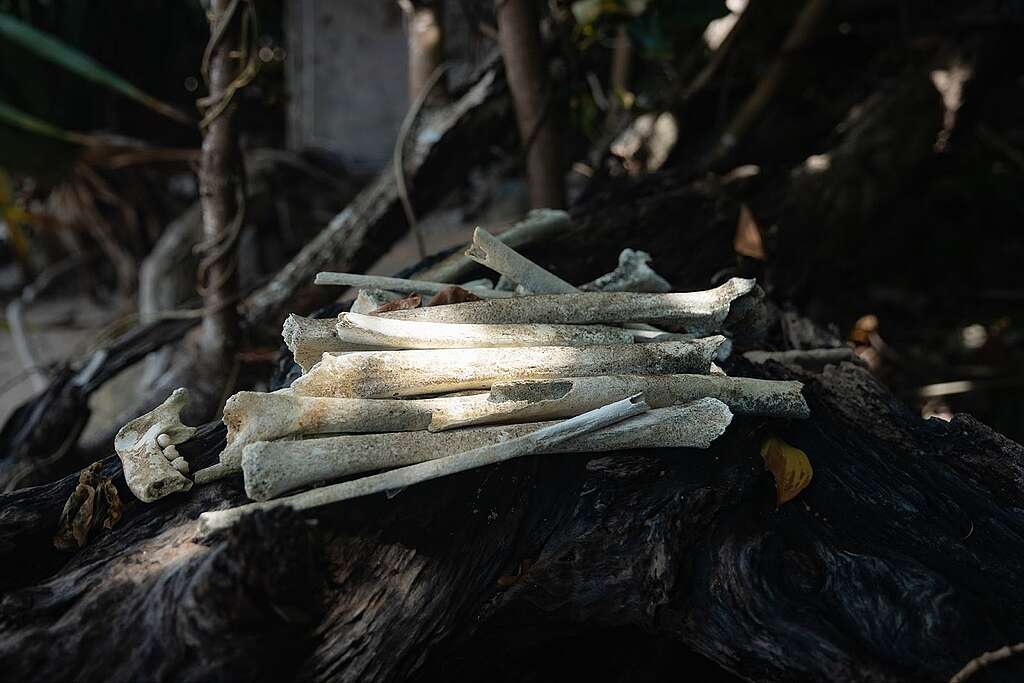
Before the cyclones had beaten a path of despair across Vanuatu, a poignant journey to Pele, a remote island, revealed the true essence of loss and damage. It doesn’t always require a headline-grabbing event with the explosive force of a cyclone. Rising sea levels on Pele had encroached upon burial grounds, washing away tombs, leaving bone remains scattered on the shores. The heart-wrenching task of collecting bones, uncertain of whose ancestors they belonged to, symbolised the depth of our losses.
Now, the Pele community faces the daunting task of relocating their ancestors’ remains to higher ground, knowing that even this move might be futile .
The journey laid bare the clear need for the world’s biggest polluters to pay for the loss and damage wrought on places like Vanuatu. This island paradise is like so many other nations; a developing economy that makes a negligible contribution to climate change but one that pays the price for the Global North’s addiction to fossil fuels through worsening extreme weather and slow onset impacts like rising sea levels.
The visit also exposed a tragedy that no amount of compensation can ever make up for. Much of what is being lost cannot be repaid with money. Life, culture, nature and security for future generations are priceless. But countries like Vanuatu need finance right now to pay for things like the rebuilding of infrastructure and emergency relief.
Although long overdue, the world took an important step in that direction last year. In a historic moment at COP27, a fight that started in the Pacific some 30 years ago, world leaders agreed to establish a loss and damage fund to compensate nations like Vanuatu for the impacts of climate change.
COP28 has to be the place to deliver on that pledge and operationalise the fund so that people like Annie and the community members of Pele can face the next disaster in the knowledge that they will be supported.
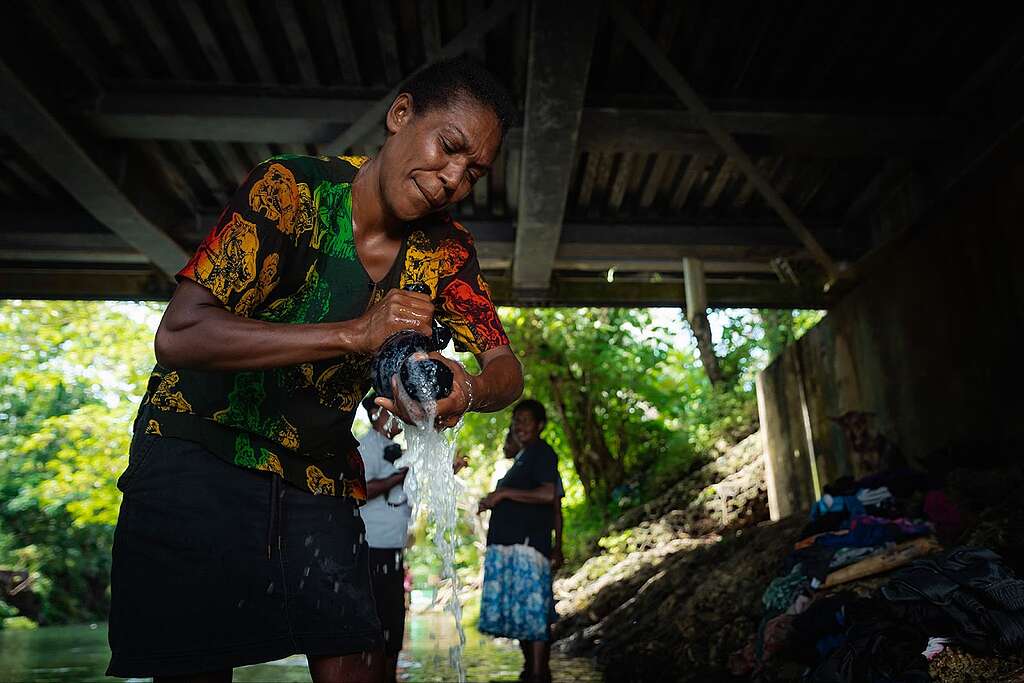
In the days before both Cyclone Judy and Kevin’s onslaught, I had sat down with Annie to discuss the impacts of climate change on her life. Her words echoed a universal truth: “We have lost our income… the decline in our sales makes it challenging. Our agricultural sales fund our children’s education.”
Annie’s message was unequivocal – the climate crisis was directly impacting not just her life but that of future generations. There were many unspoken words but as I listened, my anger mounted towards the fossil fuel industry and governments who approve new fossil fuel projects. They must listen and stop destroying our homes and our future. Join Greenpeace Australia Pacific to hold them accountable for the havoc wreaked upon Vanuatu and the broader Pacific.
Shiva Gounden is the Head of Pacific for Greenpeace Australia Pacific.
Martin Zavan is Communications Lead for Greenpeace International Make Polluters Pay campaign.

